Hey there! So, if you're in the process of ending a tenancy, creating a well-structured termination agreement is absolutely essential. This document not only signifies the end of your rental arrangement but also helps prevent any potential misunderstandings between you and your landlord. Curious about how to craft the perfect letter for your situation? Let's dive into all the details you need to know!
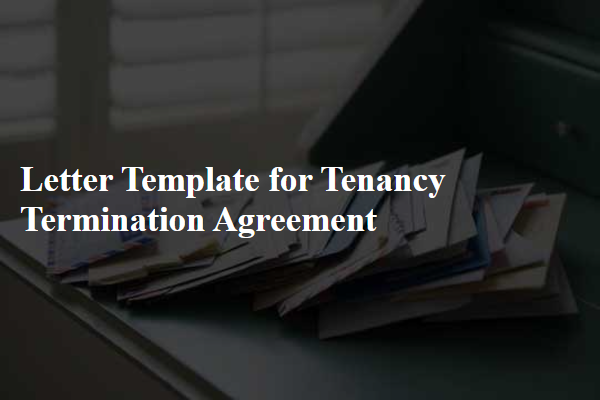
Tenant and landlord details
A tenancy termination agreement outlines the essential information regarding the end of a rental contract. The Tenant, identified as John Smith (Tenant ID: 12345), residing at 456 Maple Road, Springfield (this address is the rental property in question), must provide a written notice under local rental laws. In addition, the Landlord, represented by Mary Johnson (Landlord ID: 67890), residing at 789 Oak Avenue, Springfield (the location of the landlord's primary residence), should be included for clarity. Specific dates, such as move-out date (scheduled for December 31, 2023) and the notice period (typically 30 days), are crucial for adherence to the rental agreement's terms. Accurate recording of reasons for termination, whether due to mutual agreement or lease expiration, is also vital. Both parties must sign the document to ensure all legal obligations are acknowledged and to protect rights regarding security deposit returns and final inspections.
Termination date
The tenancy termination agreement outlines the official end date of the rental contract between the tenant and landlord. This agreement is crucial for ensuring both parties understand their rights and responsibilities. The termination date, typically agreed upon in conjunction with local tenancy laws, often falls at the end of the rental period--commonly a month-to-month arrangement that may conclude on the last day of the month. For example, if a lease is terminated in a city like San Francisco, where rent control laws may apply, the parties must adhere to a 30-day notice requirement. The document should also specify how the return of the security deposit will be handled after the termination date, ensuring clarity on conditions for property inspection and potential deductions.
Property address
Termination of a tenancy agreement can be a significant event for both landlords and tenants, often involving specific property addresses to ensure clarity. For example, a property located at 123 Elm Street, Springfield may require a formal notice detailing the termination's effective date and outlining the final steps for both parties, including the return of security deposits, property condition inspections, and the arrangement for vacating the premises. This process typically follows local housing laws, which may dictate notice periods, such as 30 days or more, depending on jurisdiction and tenancy duration. Understanding legal requirements and clear communication can facilitate a smoother transition for all involved.
Reason for termination
Tenancy termination agreements often specify a reason for ending the lease. Common reasons include non-payment of rent, lease violations (such as unauthorized pet ownership), property damage, or the landlord's decision to sell the property, often located in urban areas like New York City or Los Angeles. Notice periods also vary, typically ranging from 30 to 60 days, depending on local rental laws. Clear communication outlining the reason is crucial for preventing disputes and ensuring a smooth transition for both parties. It's important to document the condition of the property during the final walkthrough to avoid future conflicts, especially concerning security deposit returns. Documentation of all communications is advisable for legal protection.
Surrender conditions
The tenancy termination agreement outlines the specific surrender conditions essential for both landlords and tenants. Key elements include a designated move-out date, typically 30 days following the notice, to ensure sufficient transition time. Property inspections, conducted to assess the condition of the premises, must be agreed upon; this typically happens within a week of the tenant's departure. Security deposit returns, guided by local regulations--often within 30 days--must detail deductions for any damages beyond normal wear and tear. Additionally, utility responsibilities, including final meter readings, should be clarified to avoid disputes. All correspondence concerning surrender must be documented to protect both parties' interests and facilitate a smooth conclusion to the tenancy.
Letter Template For Tenancy Termination Agreement Samples
Letter template of tenancy termination agreement for early lease termination
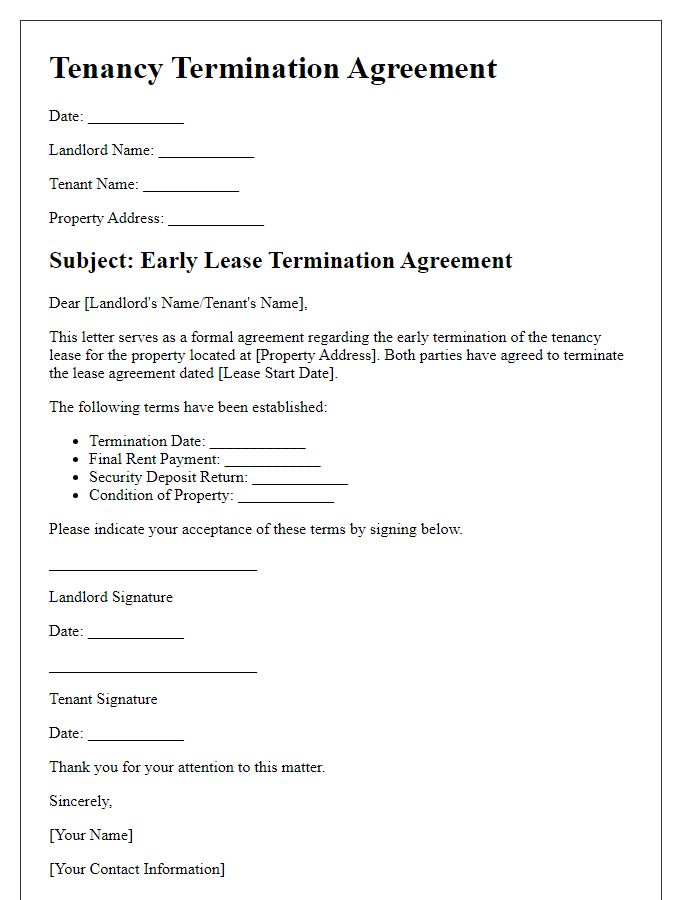
Letter template of tenancy termination agreement for month-to-month rentals
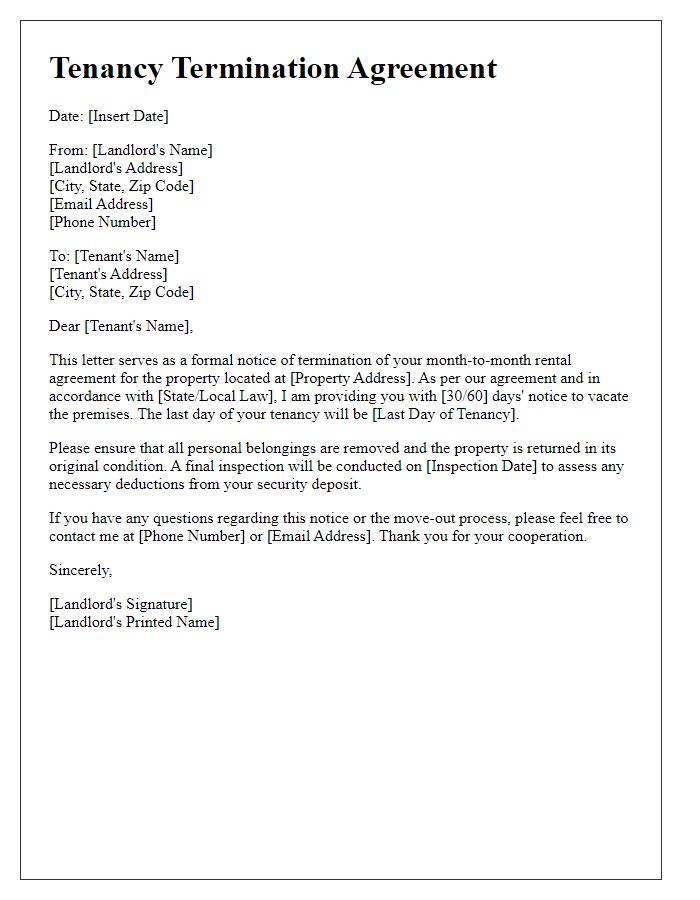
Letter template of tenancy termination agreement for roommate situations
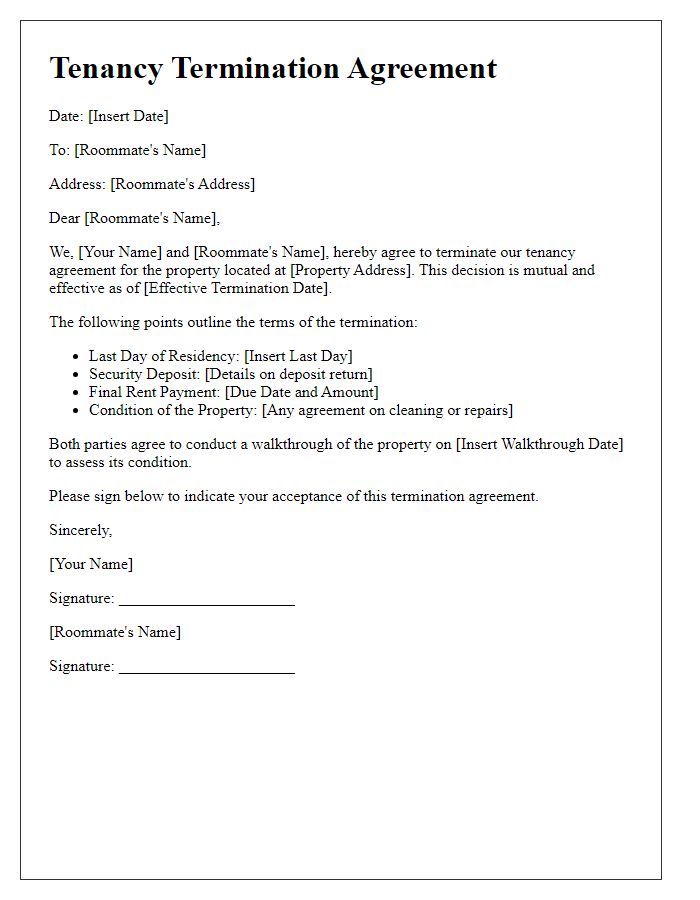
Letter template of tenancy termination agreement for subletting arrangements
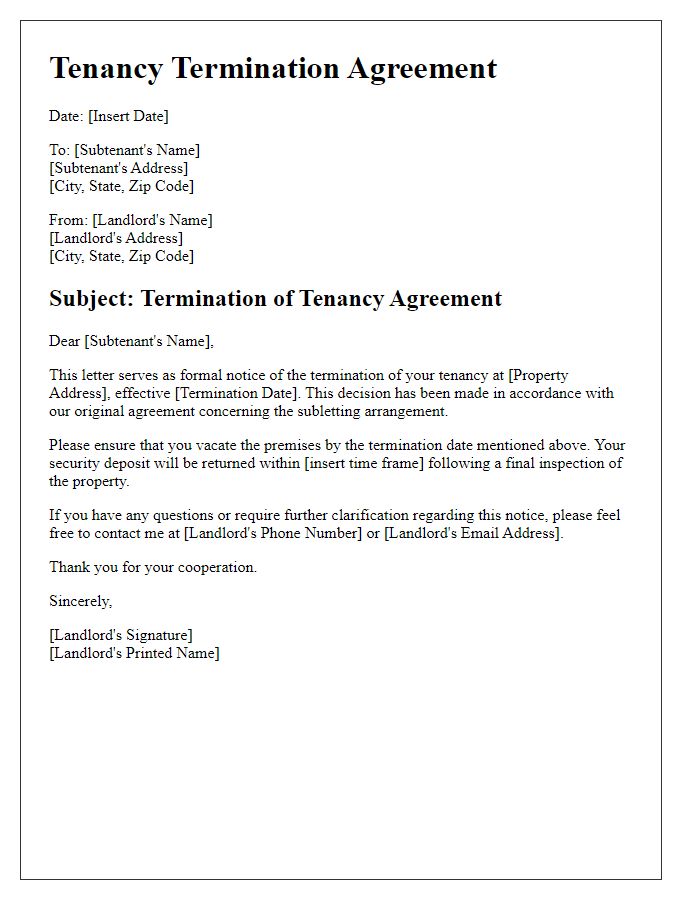

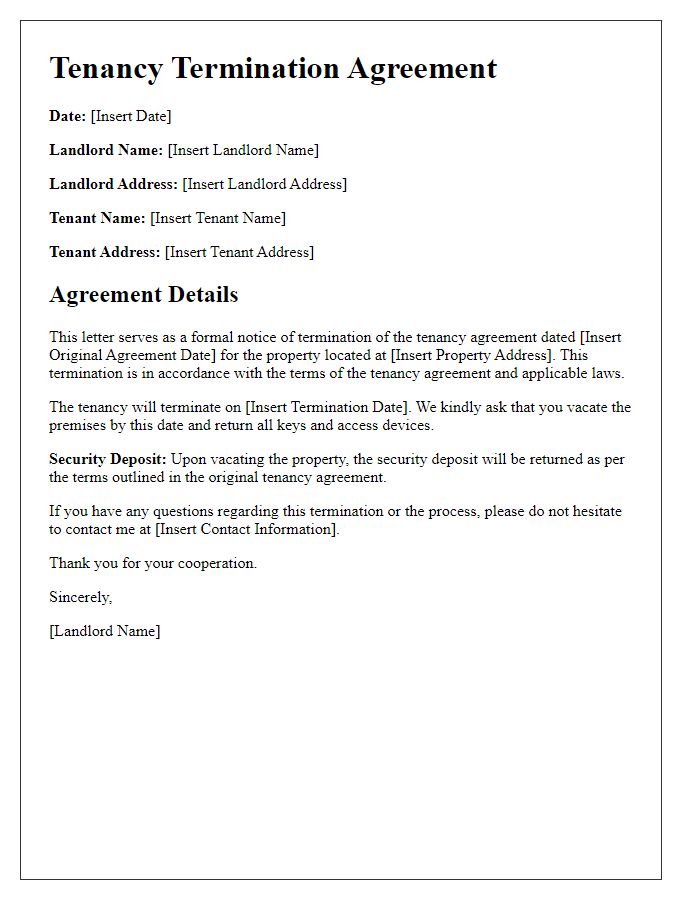
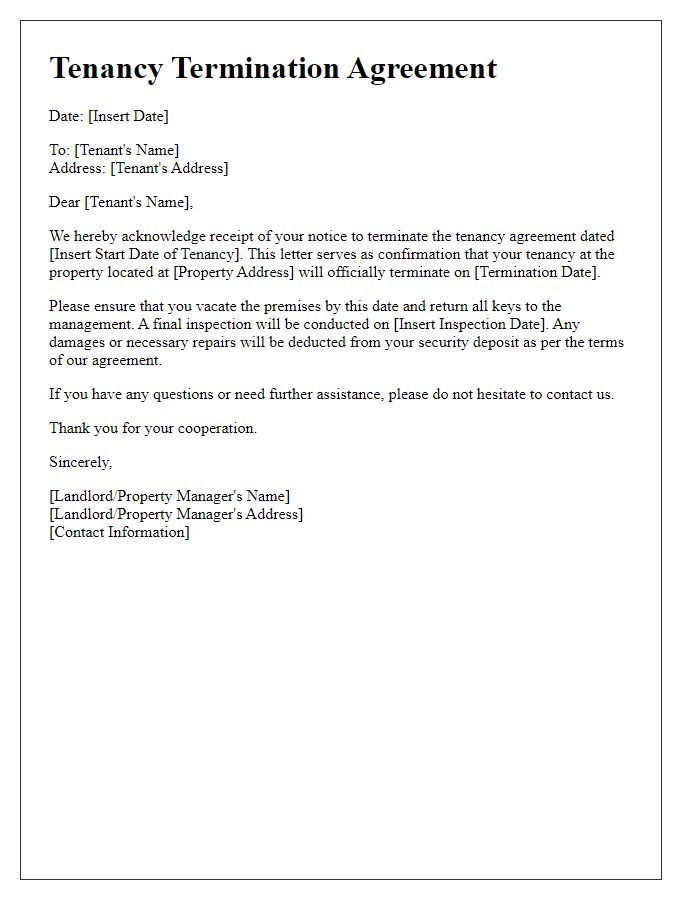
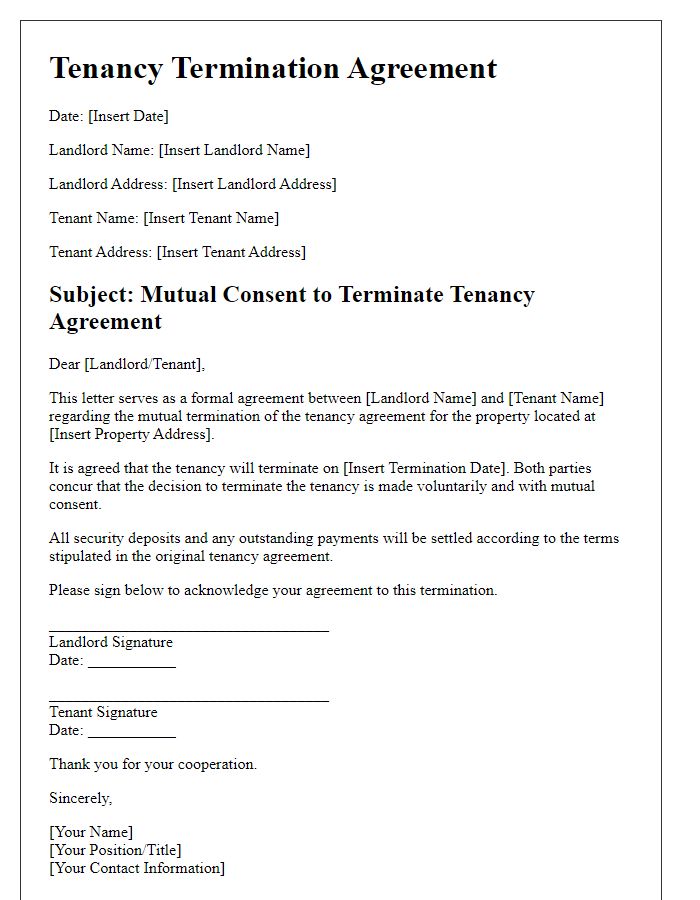
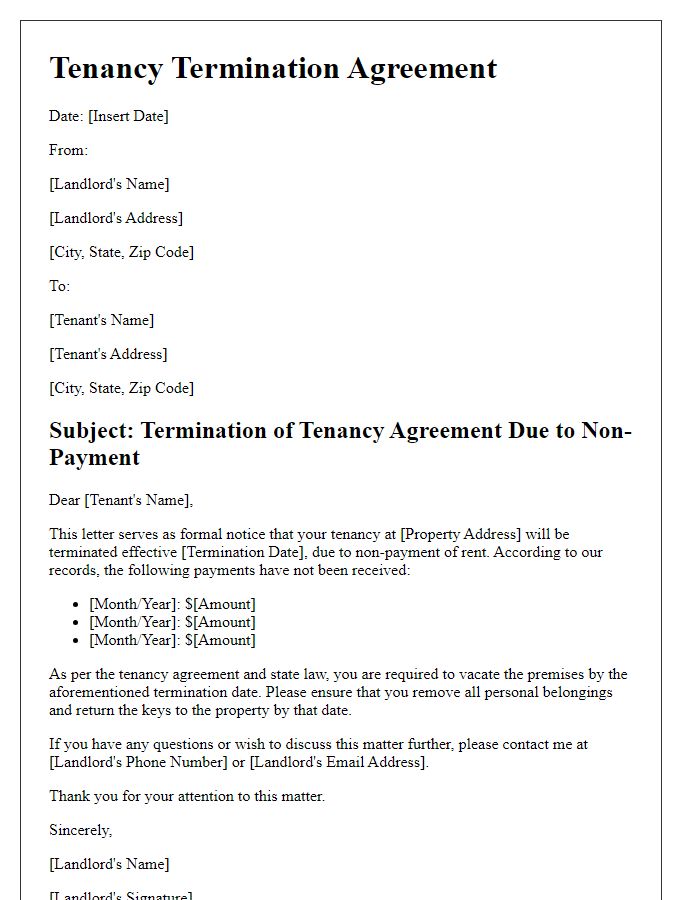
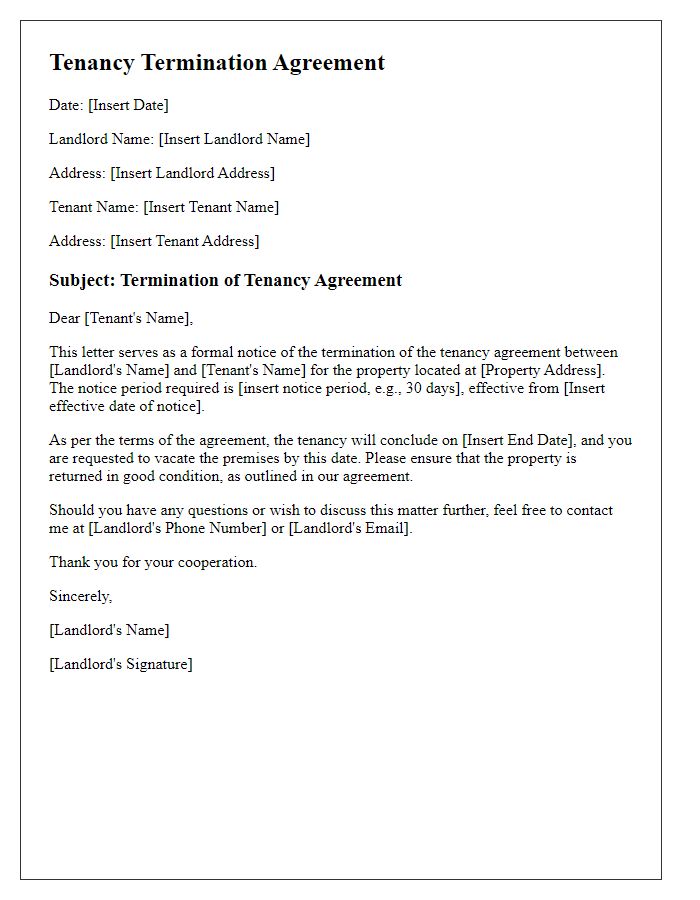
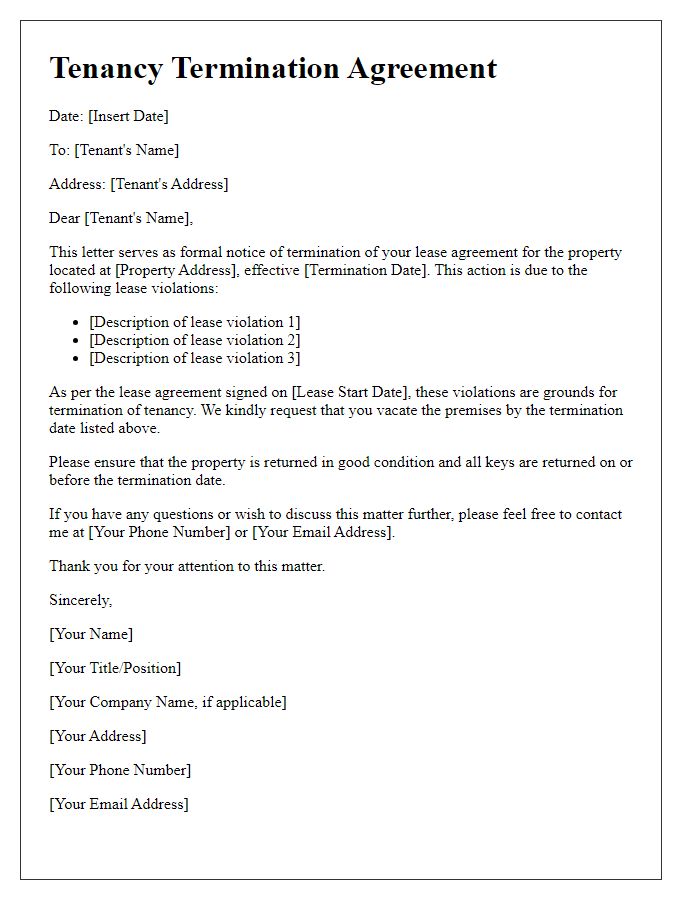


Comments